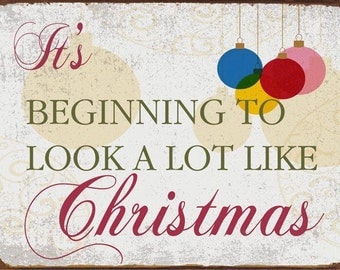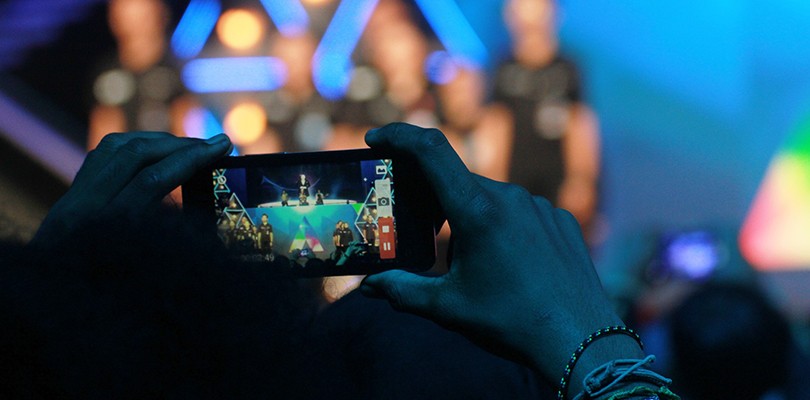- It's Beginning To Look A Lot Like.you Knowing
- It's Beginning To Look A Lot Like.you Known
- It's Beginning To Look A Lot Like.you Knowledge
Please i don't want links. I just Want to Know what y'all think the meaning of these quotes are. What are the meanings of the quotes, if you know the page there on please tell me. If not thats ok too. Please tell me what the quotes mean or stand for. 1.) It pleasure to burn. 2.) I'm seventeen and I'm crazy. My uncle says the two always go together. When people ask your age, he said, always say. How to know if he likes you? If you want to be 100 percent sure, there are several ways to check. Here we offer 20 of the “small signal” that testify that you are indeed more than a good friend for him. Do not forget that to him, when he likes you; it is the most important to him to look “cool” and not to show the sympathies. One thought on “It’s beginning to look a lot like you know what. #advent #christmas #Live” shopgirlanonymous says: December 6, 2016 at 11:33 PM. The classic tune 'It's Beginning to Look a Lot Like Christmas' sums up the excitement most people feel about the holiday season. As you sing along, you can perfectly picture everything described in the song.
When we describe people (or things), we can use the phrases “look”, “be like” and “look like”.


Look
Follow the verb “look” with an adjective to describe someone’s emotion or state: Cleanmymac 3 download free.
He looks happy.
She looks excited.
You look tired.
Remember to use do / does; don’t and doesn’t for negatives and questions.
You don’t look very happy.
Does he look sad, in your opinion?
You can also use “look” in the present continuous tense to talk about someone’s health:
“You’re looking good!” (= You’re in good shape!)
“He’s looking ill.” (= He appears ill.)
Be like
We use “be like” to talk about similarities (both physical and in character).
(Remember to change “be” to the correct form of the verb:
I’m like my sister.
David is like his father.
She’s like her mother.
Who are you like?
My sister and I aren’t like anyone else in our family.
You can also vary “be like” with other describing words:
He’s a lot like … (his brother)
He’s really like … (his brother)
He’s very like … (his brother)
He’s just like … (his brother)
He’s a bit like … (his brother)
He’s quite like … (his brother)
Remember to use the verb “to be” as the auxiliary for questions and negatives:
It's Beginning To Look A Lot Like.you Knowing
He isn’t like his mother at all!
Is he like his sister?
We can also use “be like” to ask for a description of places and things.
– I saw the new office building today.
– What’s it like? Mac os command line manual. (= What is it like?)
– It’s beautiful!
– I saw the new Brad Pitt film last night.
– What was it like?
– Pretty good! He’s great in it.
Look like
Use “look like” to talk about a person’s physical similarity with another person.
I look like my mother.
You look like your sister.
He looks like his grandfather.
(Remember, with the verb “look” in the present simple tense, you need do / does; don’t / doesn’t to make questions and negatives.)
Do you look like your sister or your brother?
Does he look like his mother?
They don’t look like their parents.
Asking questions
Be careful with these questions
What is he like? = asks about personality
– What is he like?
– He’s nice. He’s friendly and chatty.
Who is he like? = asks about physical similarity or similar character to another person
– Who is he like?
– He’s quite like his mother. They both have brown eyes.
– He’s like his father. They’re both quite ambitious.
What does he look like? = asks for a physical description
– What does he look like?
– He’s tall and slim.
Who does he look like? = asks about physical similarity with another person
– Who does he look like?
– I think he looks like his mother.
Practise your listening!
It's Beginning To Look A Lot Like.you Known
Listen to three conversations. You can also read the tapescript as you listen.
Conversation 1
https://www.english-at-home.com/wp-content/themes/eah2/mp3/ex43-1.mp3I’ve got a new boss
What’s he like?
He’s OK.
Conversation 2
https://www.english-at-home.com/wp-content/themes/eah2/mp3/ex45-1.mp3I’ve just seen Justine’s new boyfriend.
Oh? What does he look like?
Tall, handsome – just her type!
Conversation 3
https://www.english-at-home.com/wp-content/themes/eah2/mp3/ex44-1.mp3It's Beginning To Look A Lot Like.you Knowledge
I went to see the new James Bond film last night.
Oh really. What was it like?
Not bad.
Speak English Fluently!
Hi! I’m Clare, an English teacher and the founder of this site.
I can help you speak English more easily! Here are two things for you:

10 Essential Fluency Phrases – Get the phrases for easy conversations
NEW: Get An Advanced English Vocabulary In 30 Days – Go from Intermediate to Advanced level
Also found in: Dictionary, Thesaurus, Acronyms.
you know
you know
you know

you ˈknow
(informal)1 used when you are thinking of what to say next: He’s, you know, strange. It’s hard to explain.
2 used to show that what you are referring to is known or understood by the person you are speaking to: You know I bought a new bag? Well, someone stole it last night.
3 used to emphasize something that you are saying: I’m not stupid, you know.

you know
InformalWant to thank TFD for its existence? Tell a friend about us, add a link to this page, or visit the webmaster's page for free fun content.
Link to this page:

